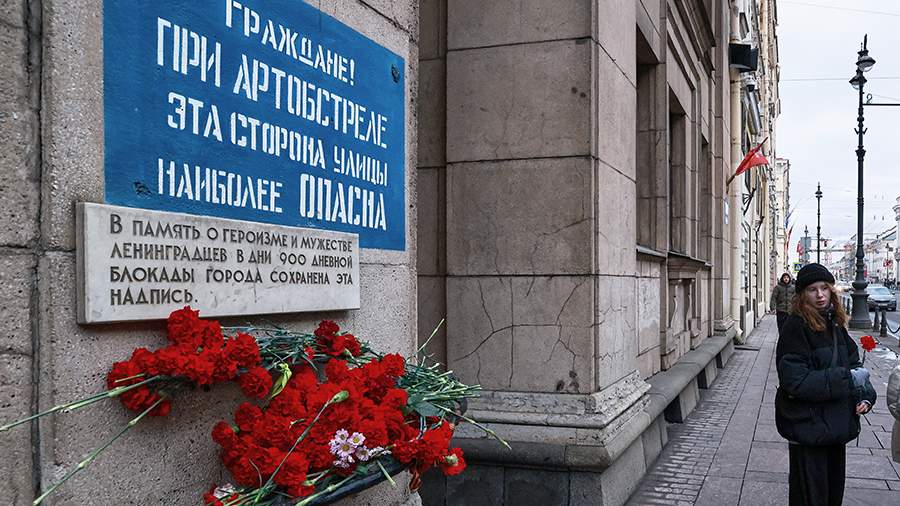The German Foreign Ministry said the country was responsible for the siege of Leningrad
- Новости
- World
- The German Foreign Ministry said the country was responsible for the siege of Leningrad

Germany will continue to bear responsibility for the crimes that were committed during the Second World War, including the siege of Leningrad. This was reported in the Foreign Ministry of the FRG on January 29.
"The siege of Leningrad was a terrible crime that the Wehrmacht committed against Leningrad and its population. Germany has taken responsibility worldwide for the crimes committed during World War II and will continue to do so," TASS quoted the foreign ministry as saying.
The agency, referring to the words of the ministry, pointed out that the German government has been implementing a humanitarian gesture since 2019, the total amount of which is €12 million. This funds the modernization of a hospital in St. Petersburg, where blockade survivors are still being treated.
As noted in the agency, these measures are aimed at improving the quality of life of the survivors of the blockade. According to the German Foreign Ministry, the FRG will continue its support despite the conflict in Ukraine.
Earlier, on November 14, 2024, the official representative of the Russian Foreign Ministry said that the German authorities stubbornly refuse to recognize the siege of Leningrad and other atrocious crimes of the Nazis on the territory of the Soviet Union as genocide of the peoples of the USSR. She also noted that the FRG at the same time pays social benefits to former members of the SS troops. She noted that Germany had originally announced its intention to modernize the "Hospital for War Veterans" in St. Petersburg as a voluntary humanitarian gesture. But that process was never finalized.
Last June 21, the head of Russia's Investigative Committee, Alexander Bastrykin, said that the German government's reluctance to recognize the crimes of fascism as genocide was ambiguous, and said that evidence had been gathered of Nazi plans to exterminate the Soviet people. The cumulative analysis confirmed that everything was committed according to the criminal plan of Hitler's regime.
The next day, Bastrykin announced the need to recognize Nazi atrocities as genocide in order to remind the world of the consequences of following a criminal ideology. At the same time, he criticized Germany's refusal to pay reparations to the victims of Nazism, including the residents of besieged Leningrad and its defenders, saying it showed the double standards of the country's foreign policy.
The siege of Leningrad began on September 8, 1941. It lasted 872 days and claimed the lives of more than 1 million people. It was possible to break through the Nazi ring around the city on the sixth attempt thanks to the "Spark" operation. The only way to deliver food to the besieged city was the Road of Life, laid on the ice of Ladoga. On January 27, 1944 the blockade was completely lifted.
Переведено сервисом «Яндекс Переводчик»

